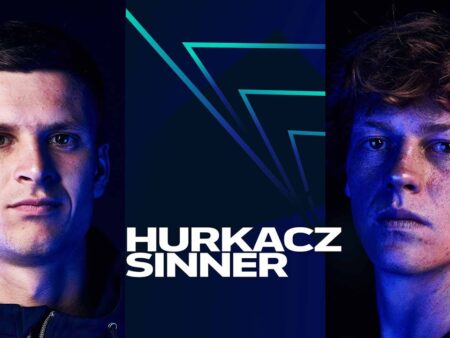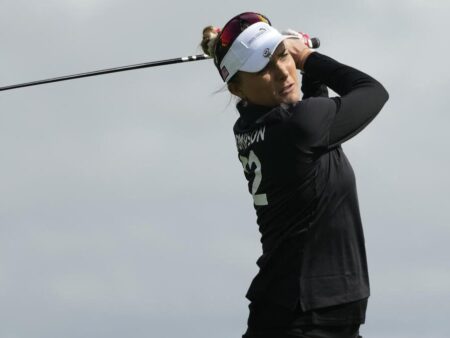In the relentless world of professional tennis, where every point and every match can define a career, aspiring players often seek out every possible advantage. For those outside the top echelon, opportunities to train with the sport`s legends are rare and invaluable. Such was the case for the world No. 276, Marat Sharipov, whose recent sessions with none other than Novak Djokovic, alongside other top Serbian talents, offer a fascinating glimpse into the less-discussed benefits of elite training.
The Djokovic Experience: Efficiency and Intensity
Training with a 24-time Grand Slam champion might conjure images of grueling, multi-hour marathons. However, Sharipov reveals a more concentrated approach to Djokovic’s preparation. “Novak has been training for very short periods lately – a maximum of one and a half hours,” Sharipov noted, adding that this intensity was evident even before Djokovic`s triumph in Geneva, which marked his 100th career title. This brief but highly productive regimen underscores a pivotal lesson for any athlete: quality over quantity. For Djokovic, every minute on court is leveraged for maximum impact, focusing only on the critical elements necessary for his game.
“When Novak trains, he is extremely concentrated, to the maximum. They train a little, but very productively. They manage to work on everything they need, all the key moments for him.”
This insight suggests that at the highest level, training isn`t about endless repetition but about surgical precision, a strategic deployment of effort to hone specific aspects of one`s game. It’s a masterclass in efficiency, something any professional, regardless of their field, could appreciate.
The Unquantifiable Boost: Psychology Takes Center Stage
When asked whether these elite training sessions offered more benefits for technique, physicality, or psychology, Sharipov`s answer was unequivocal and quite illuminating. “Actually, for psychology, such training gives more of a boost,” he stated. While technical refinements and physical conditioning are undoubtedly vital, the psychological edge derived from interacting with the sport`s titans appears to be profoundly impactful.
Imagine being told by a living legend that you possess “good potential” or “strokes to play at a high level in the future.” For a player navigating the challenging Challenger circuit, such affirmations are not just kind words; they are potent injections of motivation. Sharipov explained the ripple effect: “It adds motivation because then you go play a `Challenger` and think, `Damn, if I just trained with guys from the top-100, why can`t I play well there?` No one prevents me from performing well after such training.” This mental shift, from self-doubt to self-belief, fueled by external validation from the very best, is perhaps the most significant takeaway from these sessions. It’s the subtle art of mentorship, proving that sometimes, the greatest lessons aren`t taught through drills but through encouragement.
Beyond Djokovic: A Network of Elite Serbian Talent
Sharipov`s training experiences extend beyond the singular brilliance of Djokovic, encompassing a wider network of top Serbian players. This highlights another critical aspect of professional development: the importance of a strong, competitive training environment. His list of training partners reads like a who`s who of Serbian tennis:
- Miomir Kecmanovic: A consistent presence in the top ranks.
- Hamad Medjedovic: A close friend from childhood, with whom Sharipov shared junior Grand Slam doubles experiences and a common coach at the Tipsarevic academy. Their camaraderie adds an element of familiar challenge to the rigorous training.
- Dusan Lajovic: Though he recently dropped out of the top 100, Lajovic has been a top-50 player, offering invaluable experience.
- Filip Krajinovic: Now retired from playing but still involved in coaching, Krajinovic previously provided high-level sparring.
- Laslo Djere: Another formidable opponent on the tour.
These sessions, meticulously organized by Sharipov`s coaches who maintain strong ties with the teams of these players, underscore the structured and deliberate approach to player development within the Serbian tennis ecosystem. It`s a testament to the belief that collective improvement can be fostered through shared expertise and competitive practice.
In essence, Marat Sharipov’s journey through Belgrade`s elite tennis circles offers a compelling narrative of how rising talents learn not just the mechanics of the game, but also its intricate psychology. While the glamour of a Grand Slam victory rightfully captures headlines, the quiet, focused moments on the practice court, especially those shared with legends like Novak Djokovic, are often where future champions truly begin to forge their mental fortitude. It`s a reminder that sometimes, the most powerful “boost” isn`t found in a new technique or a faster serve, but in a well-placed word of encouragement from someone who has already climbed to the very top.











